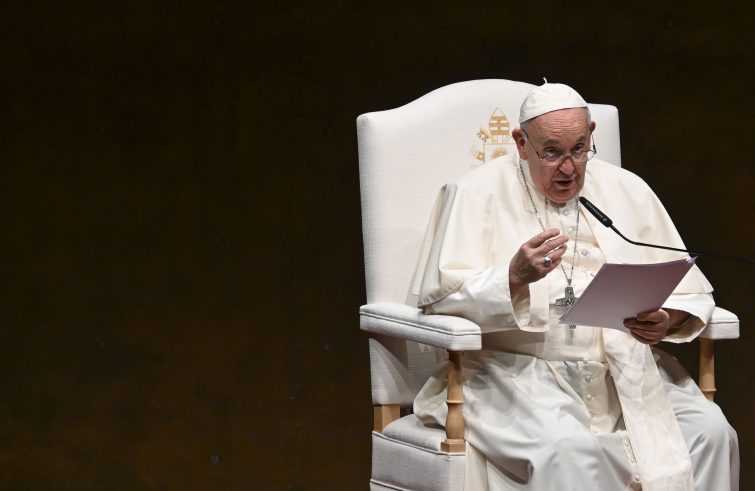
“I dream of a Europe, the heart of the West, which employs its immense talents to settling conflicts and lighting lamps of hope; a Europe capable of recovering its youthful heart, looking to the greatness of the whole and beyond its immediate needs; a Europe inclusive of peoples and persons, together with their own cultures, without chasing after ideologies and forms of ideological colonization.” In his first speech in Portugal, before meeting the World Youth Day ‘people’ who flocked to Lisbon from all over the world, Pope Francis unveiled his dream for the future, rooted in the ‘old’ continent, calling for a “diplomacy of peace” in a world divided by major global challenges such as “planetary injustice, wars, climate and migration crises.” Lisbon, as an ocean city, “thus reminds us of the importance of the whole, to think of borders as places of contact, not as boundaries that separate”, Francis said addressing the authorities, civil society and the diplomatic corps. Lisbon, the city where the eponymous Reform Treaty of the European Union was signed in 2007, “can suggest a different path” starting precisely from those “milestones along the path of the European community, impressed on this city’s memory.”
“For the world needs Europe, the true Europe. It needs Europe’s role as a bridge and peacemaker in its eastern part, in the Mediterranean, in Africa and in the Middle East”,
Francis said. For the Pope, the specificity of our continent lies in its ability to “initiate processes of dialogue and inclusion and by developing a diplomacy of peace aimed at settling conflicts and lessening tensions, attentive to the slightest signals of distension and reading between the most crooked lines. We are sailing amid storms on the ocean of history, and we sense the lack of courageous courses of peace.”
“Where are you sailing, if you are not showing the world paths of peace, creative ways for bringing an end to the war in Ukraine and to the many other conflicts causing so much bloodshed?”,
challenging questions to Europe, accompanied by specific wishes, which serve as a guide.
“West, on what course are you sailing?”,
Francis said extending the gaze: “Your technologies, which have brought progress and globalized the world are not by themselves sufficient, much less your highly sophisticated weapons, which do not represent investments for the future but a depletion of its authentic human capital: that of education, health, the welfare state.” “It is troubling when we read that in many places funds continue to be invested in arms rather than in the future of the young”, Francis said, sounding the alarm regarding current events.
“In today’s developed world, paradoxically, the defence of human life, menaced by a creeping utilitarianism that uses life and discards it”,
Francis said. “I think of so many unborn children, and older persons who are abandoned, of the great challenge of welcoming, protecting, promoting and integrating those who come from afar and knock on our doors, and the isolation felt by so many families that find it hard to bring children into the world and raise them”, the Pope went on to highlight the question:
“Where are you sailing, Europe and the West, with the discarding of the elderly, walls of barbed wire, massive numbers of deaths at sea and empty cradles, many advanced laws concerning euthanasia?”.
Despite this gloomy scenario, Francis’ homage, an ocean of young people from around the world descended on Lisbon, driven by a yearning for unity, fraternity and peace: “they urge us to make their good dreams come true. They are taking to the streets, not to cry out in anger but to share the hope of the Gospel, the hope of life.” We need “healthy politics” to “correct the imbalances.” There are “three construction sites of hope in which all of us can work together”, the Pope said. These are “the environment, the future, and fraternity. The Pope’s invitation from the Monastery dos Jerònimos, where he met the clergy, was to reject a “pastoral ministry of nostalgia and regret”, and instead to see the Synodal Church as “an opportunity to involve the laity with fraternal enthusiasm and healthy pastoral creativity.” “The Church is not a customs post.” One certainty above all:
“Next to the young, you will not grow old”,
goes to a Portuguese proverb.












